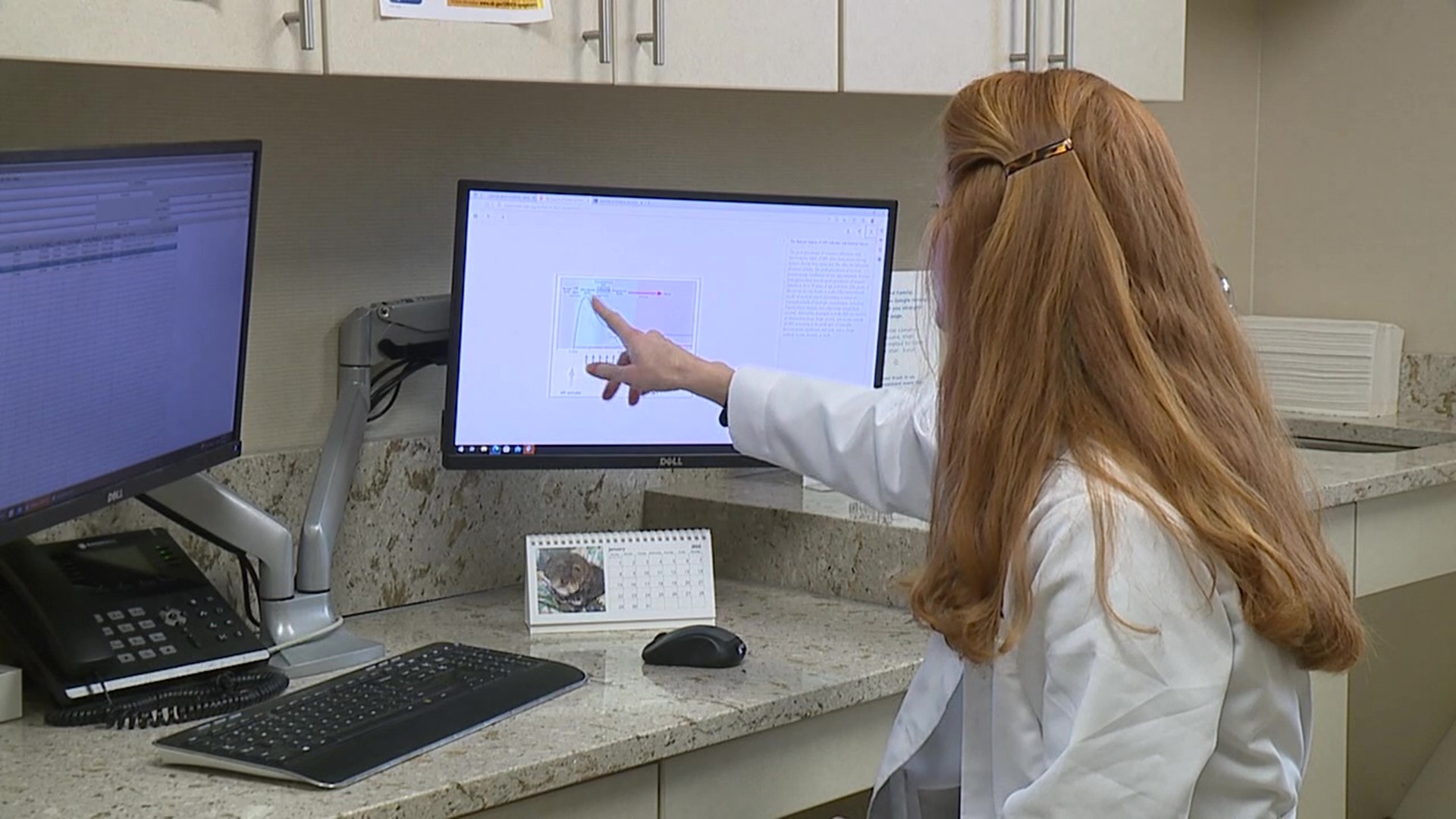DUNMORE, Pa. — Dr. Meghan Haggerty's days at the Northeast Radiation Oncology Center in Dunmore are spent treating patients who've been diagnosed with cancer recently. She's seeing many patients diagnosed with late-stage cervical cancer.
"Cervical cancer, for the most part, is a preventable disease, and we're all busy, and I think COVID has allowed women to get a little lax with screening," Dr. Haggerty said.
"Just taking care of everyone else, I think somehow I stopped taking care of myself, and really, it's a pap smear, and it could have prevented the fight for my life," said Anne Marie Evans of Archbald.
Evans is a mom of four. She was diagnosed in May of last year at the age of 58 after some faint post-menopausal spotting caught her attention.
"That to me was something very unusual, so I talked to some friends because I still wasn't so sure that that meant anything, and one of my friends is a nurse, and she's like, 'Call, make an appointment, let's just be sure, get a pap. When did you have your last pap?' And I wasn't even going to answer that one."
Since cervical cancer is highly treatable when found early, screening is the key to saving lives.
"What a pap smear allows us to detect are very, very early-stage changes in the cervix, and at that point, a woman usually has many options. There could be minimally invasive options or in-office procedures," Dr. Haggerty explained.
The patients Dr. Haggerty sees in her office need aggressive treatment. She stresses the importance of yearly visits to the gynecologist with routine testing starting at age 21.
There are resources available on the Northeast Regional Cancer Institute website.
See more Healthwatch 16 stories on YouTube.

